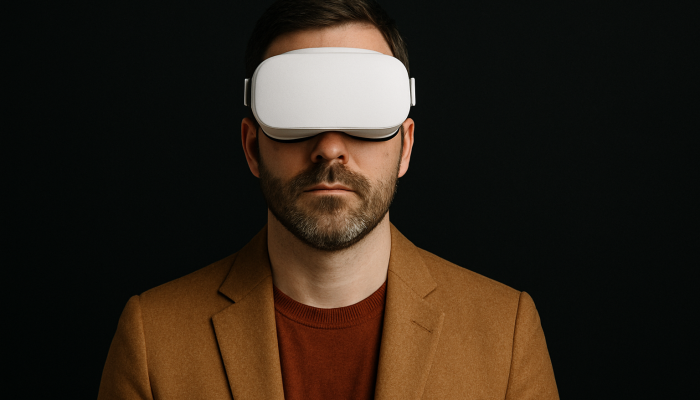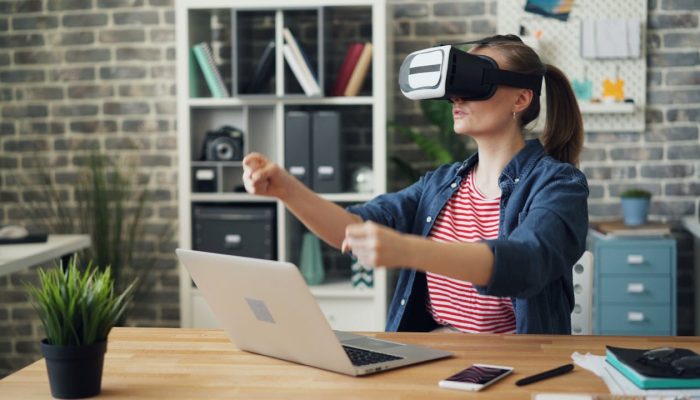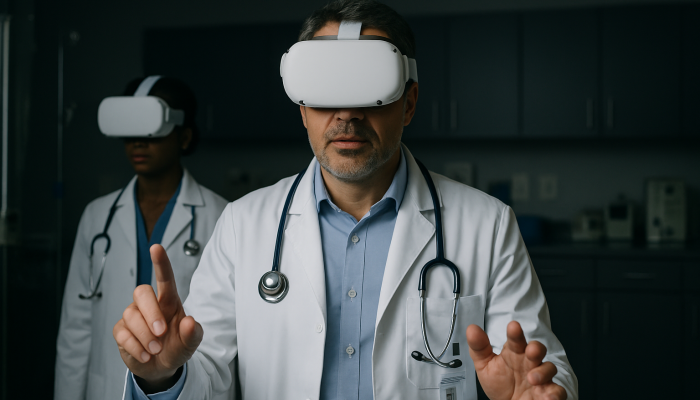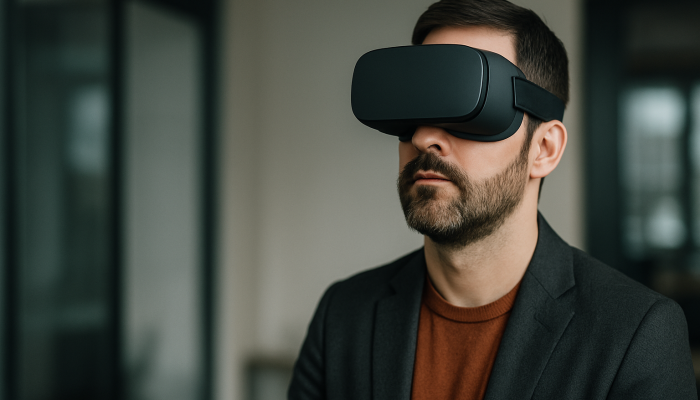XR Testing: How Seriously Should Your Team Take It?
We Take XR QA Seriously -

Here’s Why It Matters
Extended Reality (XR) is revolutionizing how we interact with digital content. From gaming to training, therapy, design, and collaboration — XR is no longer niche; it’s everywhere. But with this evolution comes a new set of quality expectations. Unlike mobile or web apps, where glitches may be annoying, in XR they can be disorienting, dangerous, and devastating to user trust. That’s why XR QA is not optional — it’s mission critical
At MixedRealityTech, we take XR QA very seriously — because in immersive environments, even small issues can completely break the user experience
Why Is QA in XR More Challenging Than Mobile or Web Testing?
Here’s what sets XR QA apart
- Embodied User Experience:
- In XR, the user isn’t just a viewer — they are inside the environment. Glitches can cause nausea, anxiety, or even physical discomfort.
- Hardware Complexity
- XR apps must run seamlessly across various headsets like Meta Quest, Pico, HTC Vive, Valve Index, and even tethered PC-based MR/VR systems. Each behaves differently in terms of resolution, tracking, and input systems.
- XR apps must run seamlessly across various headsets like Meta Quest, Pico, HTC Vive, Valve Index, and even tethered PC-based MR/VR systems. Each behaves differently in terms of resolution, tracking, and input systems.
- Spatial Interactions:
- Unlike taps or clicks, interactions in XR involve motion, hand tracking, gaze detection, and controller haptics. Each of these layers must be precisely validated.
- Unlike taps or clicks, interactions in XR involve motion, hand tracking, gaze detection, and controller haptics. Each of these layers must be precisely validated.
- Real-World Conditions:
- Lighting, room size, reflectivity, and user posture (seated/standing) all impact app performance and need to be simulated in test conditions.
- Comfort & Safety:
- Poor frame rates, interaction latency, or janky UX can cause motion sickness, eye strain, or balance issues — especially for elderly or first-time users.
- Poor frame rates, interaction latency, or janky UX can cause motion sickness, eye strain, or balance issues — especially for elderly or first-time users.
Our Approach to XR QA: More Than Just Bug Hunting
Too many teams treat XR QA like traditional app testing — but XR is a different world, and it demands a different kind of attention.
In our approach, XR testing goes beyond just finding bugs. We focus on the following five critical pillars:
1. User Comfort
XR must be safe and comfortable. We test for :
- Smooth frame rate (minimum 72–90 FPS depending on headset)
- Avoidance of rapid camera movements or jump cuts
- Prevention of disorientation, dizziness, and motion sickness
- Ergonomic UI placement and user posture adaptability
2. Interaction Accuracy
We validate:
- Gesture recognition (e.g., pinch, grab, point)
- Button mapping and trigger behavior
- Gaze-based interactions
- Object physics and collision accuracy
3. Cross-Device Compatibility
Every XR headset has unique hardware and software characteristics. We test across:
- Meta Quest 2 / 3 / Pro / 3S
- HTC Vive and Vive Focus
- Pico Neo
- Valve Index
- Windows Mixed Reality
Device-specific bugs include:
- Incorrect controller mapping
- Resolution scaling issues
- Tracking loss or jitter
- Inconsistent UI scaling
4. Real-World Scenarios
We simulate diverse user behaviors and real-life settings
- Limited play spaces (small rooms or cluttered environments)
- Low-light or overly reflective spaces
- Seated vs standing usage
- Users unfamiliar with XR who might skip onboarding
5. Performance & Stability
XR apps must remain stable across various conditions. We focus on:
- Memory management
- Load balancing
- Real-time performance benchmarking
- App stability over extended sessions (30–60 mins)
Common XR Bugs We Detect
- Controller input delays
- Hand-tracking misfires
- UI elements drifting or floating incorrectly
- Environment lighting flickers
- Audio desync or dropouts in spatial sound
- App crashing when user moves out of play area
- Inaccurate teleportation or movement mechanics
Each of these might seem minor in 2D apps, but in XR, they can be immersion-breaking or worse — physically uncomfortable
Use Cases We’ve Worked On
At MixedRealityTech, we’ve tested a range of XR experiences across:
- Gaming
- Multiplayer games like Pickleball One, which achieved a 4.4★ rating on the Meta Store
- Healthcare:
- Training simulations for surgical procedures and AR diagnostics (clients include Boston Scientific & Medtronic)
- Training simulations for surgical procedures and AR diagnostics (clients include Boston Scientific & Medtronic)
- Education
- Virtual classrooms and lab simulations
- Productivity
- XR collaboration tools and design reviews
In every case, our QA process ensures the app meets the specific demands of its domain.
Building Our XR-First QA Service
We realized that traditional QA methods fall short when applied to immersive apps. That’s why we built a QA service focused entirely on XR:
- A real-device lab with headsets across platforms
- A global team of XR QA testers familiar with Unity, Unreal, WebXR, and OpenXR standards
- Detailed bug reports with logs, repro steps, and video capture
- User persona testing (first-time users, elderly, low mobility, etc.)
This helps developers launch with confidence — without compromising on quality or trust.
Benefits of Investing in XR-Specific QA
- Higher retention rates
- Users stay longer in stable, intuitive experiences
- Users stay longer in stable, intuitive experiences
- Fewer refunds/support tickets:
- Fewer bugs = fewer complaints
- Faster store approvals
- Smoother Meta/Oculus submission process
- Better reviews
- Comfort + reliability = happier users
- Brand trust:
- Crucial in healthcare, education, and enterprise
Final Thoughts: Don’t Let Bugs Break Immersion
In XR, immersion is everything. One glitch, one broken interaction, or one crash is enough to break trust and lose a user forever.
We believe QA in XR isn’t a checkbox — it’s a core pillar of product success
That’s why our mission at MixedRealityTech is to help immersive product teams launch confidently — with zero compromise on quality.
Interested in seeing how we test? Try our 2-week free trial and experience our process on your actual builds.
Contact Us
Fill out the form below and we will
contact you as soon as possible!



